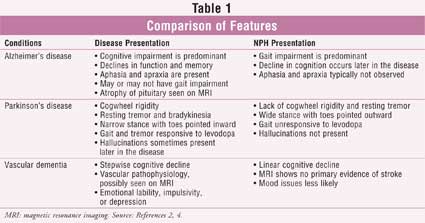About Dementia & Alzheimer's Disease
Dementia is a condition characterized by progressive cognitive decline and includes many variations. CT PET scans can differentiate Alzheimer's from frontotemporal and vascular dementia.
Alzheimer's disease is a form of dementia that is characterized by a loss of brain function in the areas of memory, thinking, perception, and behavior due to neuron degeneration.
Vascular dementia is caused by poor blood flow to the brain, which deprives brain cells of the nutrients and oxygen they need. It can result from any number of conditions which narrow the blood vessels including stroke, diabetes, and hypertension.
Normal pressure hydrocephalus involves an accumulation of cerebrospinal fluid in the brain's cavities and results in added pressure on the brain. Individuals with dementia caused by normal pressure hydrocephalus often experience problems with movement, balance, bladder control, speech, problem-solving abilities, and memory.
Frontotemporal dementia is a rare disorder which causes damage to brain cells in the frontal and temporal lobes of the brain and it affects a person's personality significantly in the form of a decline in social skills as well as emotional apathy and memory loss.
Amnestic mild cognitive impairment is a brain condition that is a form of cognitive impairment but is specific to memory loss and may be a transitional state between normal brain aging and Alzheimer's disease.
Vitamin B12 Deficiency
If your B12 is less than 400 then it's possible to have occult B12 deficiency. A fasting homocystiene and methylmalonic acid should be ordered and if elevated indicate occult B12 deficiency. Homocystiene and methylmalonic acid are involved in the metabolism of B12. If your B12 is below 300 you have B12 deficiency and should be given IM injections of 1000mcg of B12 per a schedule set by your physician. Sublingual B12 may be used in replacement of IM injections, however IM injections are the gold standard of treatment. Oral B12 will not replace B12 when you are deficient because of a defect in the absorption of B12. Many labs have the wrong low values for B12 and medical residencies, with the exception of neurology residencies, do not traditionally learn the low values of B12 that cause neurological complications. B12 dementia is frequently misdiagnosed as Alzheimer's disease and is not reversible with B12 replacement.Educational WebsitesAlzheimer's Association Alzheimer's Association, founded April 10, 1980, is a nonprofit health organization that promotes research for Alzheimer's disease and provides support for patients. Their services include help lines, support groups, local chapters, an annual walk to end Alzheimer's, and efforts to pass legislation. Alternative Medicine Review - Alzheimer’s Disease, Amnestic Mild Cognitive Impairment, and Age-Associated Memory Impairment (PDF) Alzheimer’s Disease, Amnestic Mild Cognitive Impairment, and Age-Associated Memory Impairment: Current Understanding and Progress Toward Integrative Prevention in the Alternative Medicine Review Volume 13, Number 2 2008. Download this 30 page PDF Document to learn about Alzheimer's disease and dementia. 23 and Me - Genetic Testing for Alzheimer's The most common cause of dementia in people over 65, AD currently affects about five million people in the United States. As the population ages, many more people are expected to develop AD; some estimate 14 million Americans will have the disease by the year 2050. You can purchase an "Odds Calculator" kit from their store to determine if you are at risk of getting Alzheimer’s disease. Lumosity Lumosity is a web application that improves working memory, visual attention, fluid intelligence, and executive function to achieve better face-name recall, faster problem-solving skills, and a quicker memory. Lumosity is directed by researchers, some of which are located at UCSF and Stanford to create games and tests that improve cognitive ability using the latest developments in neuroscience. Frontotemporal Dementia Support Group Previously known as the Pick’s Disease Support Group, the FTDSG effort’s are directed towards carers who are coping with behavioral changes in a partner, family member or friend as a result of frontotemporal dementia, Pick’s disease, frontal lobe degeneration, dementia with lew bodies, and corticobasal degeneration. They are one of the facilities tailored for the younger sufferers of Frontotemporal dementia. Their support groups provide information, companionship, and support via their site and seminar’s in the United Kingdom. The Association for Frontotemporal Degeneration The AFD is a non-profit organization that focuses on providing compassion and hope to the lives that are touched by frontotemporal degeneration. Through many means such as spreading awareness, funding research, and providing care for those who need it, the AFD envisions a world where frontotemporal degeneration is understood, effectively diagnosed, treated, cured and ultimately prevented. |
- Alzheimer's Disease
- Vascular Dementia
- Mixed Dementia-Alzheimer's
- Dementia with Lewy Bodies
- Creutzfeldt-Jacob Dementia
- Normal Pressure Hydrocephalus
- Parkinson's Disease Dementia
- Frontotemporal Dementia with Parkinsonism

